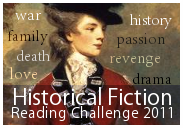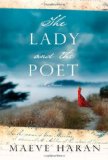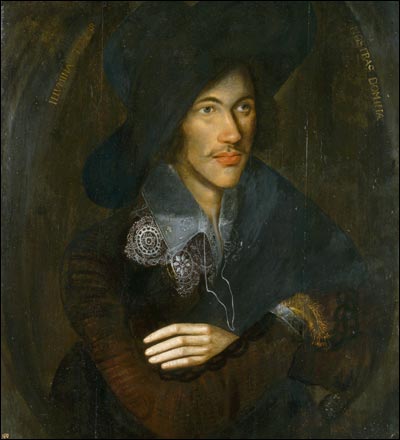[amazon_image id=”0670026476″ link=”true” target=”_blank” size=”medium” class=”alignleft”]The Bookman’s Tale: A Novel of Obsession[/amazon_image]Charlie Lovett’s novel [amazon_link id=”0670026476″ target=”_blank” ]The Bookman’s Tale: A Novel of Obsession[/amazon_link] is the story of Peter Byerly, antiquarian bookseller and restorer, recently widowed and at a loss as to how to move on with his life without his wife Amanda by his side. When Peter goes to a bookshop in Hay-on-Wye and discovers a watercolor of a woman who bears a stunning resemblance to his late wife tucked in a book, he begins a quest to discover the origin of the mysterious watercolor. He enlists the help of Liz Sutcliffe, an editor of art history books, who tells him B.B. is at the center of a mysterious scandal. Peter is hired to look through the book collection of John Alderson, a local man who lives in a sprawling mansion and whose family has an “ancient grudge” with the Gardner family across the river. In a box labeled “Never to be sold,” Peter finds the Holy Grail—proof that William Shakespeare of Stratford was the true author of the plays attributed to him. But is it real? Or a forgery?
The novel travels back and forth among two distinct periods in Peter’s life: his time with Amanda and the novel’s present in 1995. In addition, the reader is taken back to several points in the history of the copy of Pandosto by Robert Greene that supposedly has Shakespeare’s annotations in it. Greene is the playwright who famously referred to Shakespeare as an “upstart crow, beautified with our feathers” who believed himself to be the “only Shake-scene in a country.” Pandosto is itself a very rare book and is the source material for Shakespeare’s play [amazon_link id=”B00762VENM” target=”_blank” ]The Winter’s Tale[/amazon_link].
The novel was an entertaining mystery, and I found I liked and sympathized with Peter as he struggled to move on with his life and then as he found himself embroiled in a mystery. However, coincidences strained credulity and I found the plot somewhat predictable. I would recommend it to folks looking for a page-turner à la [amazon_link id=”0307474275″ target=”_blank” ]The Da Vinci Code[/amazon_link], but better written and with more book nerdiness, but don’t look for the next [amazon_link id=”0679735909″ target=”_blank” ]Possession[/amazon_link] or [amazon_link id=”1400031702″ target=”_blank” ]The Secret History[/amazon_link].
Rating:









